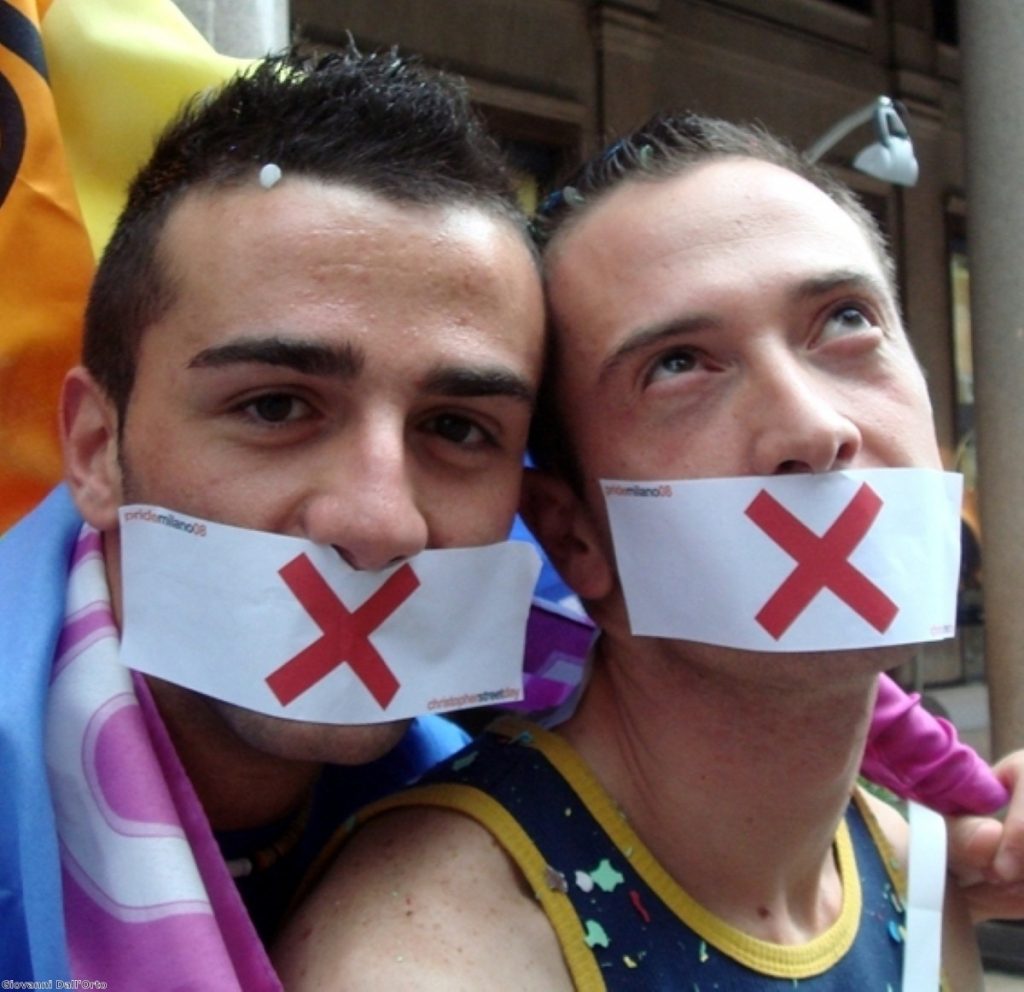Legal judgement forces Home Office to take gay asylum seriously
The humiliating ritual of gay asylum claims could be a thing of the past. Very often, to prove their need for refuge in Britain, gay asylum seekers are forced to show authorities images of themselves having sex or answer hours of demeaning questions.
This week's ruling by the Court of Justice of the European Union could bring an end to all that. The court found tests to prove someone's sexuality or intimate questions about their sexual life breach the charter of fundamental rights.
It did this in four ways. First, it found assessments of sexual orientation should be based on individual circumstance, not stereotyped notions of gay behaviour. Secondly, that the right to respect for private and family life precludes detailed questions about sexual habits. Third, that a test of sexuality, including photos or videos of you having sex, infringes human dignity. And fourth, that delays on disclosure of sexuality should not be held against the applicant.
That last past is particularly important. Many gay asylum seekers, like women who have been raped, will not reveal it immediately. For many of them, it will be the first time they ever spoke openly about their sexuality. As one arrival from Nigeria once told me:


"There was no way I could talk about what I was going through. I'd never spoken to anyone about my sexuality.
"I couldn’t mention my sexuality to them. I didn’t know if they were in contact with police. I didn't know if this country was friendly. I couldn’t talk to them about my persecution, my religion and all of that.
"When I was comfortable, after I'd come out, I talked about my sexuality with them."
EU court rulings are binding but there's often wriggle room and the Home Office sometimes tries to misinterpret or delay implementation.
It's likely they will try to do so here. For a start, the statement they put out in response to the ruling is misleading.
"The UK has a proud history of granting asylum to those who seek refuge by establishing a genuine need for our protection.
"We have never required asylum seekers to undergo tests to prove their sexuality. Our guidance and training on handling claims based on sexual orientation was developed in conjunction with Stonewall, the UK Lesbian and Gay Immigration Group and the UN High Commissioner for Refugees."
While it's true that the Home Office does not demand video evidence of people's sexuality, asylum seekers are put in a position where they must frantically try anything to prove their sexuality, because the system is rigged against them. It wants them to fail.
As the high court found recently, the fast-track procedure for asylum claims "carries an unacceptably high risk of unfairness". It locks people up for weeks without legal representation. They typically only see a lawyer on the day they must give evidence to Home Office officials. For people who have often suffered appalling abuse, including torture and detention without trial, this is not a sensible way to discover if they have a legitimate asylum claim.
Once they get into the interview they often find a stony-faced case worker in front of them, intent on proving them to be a liar instead of listening with a sympathetic ear.
A confidential Home Office report leaked to the Observer earlier this year documented how the official asked a bisexual asylum seeker the following questions over a five hour interrogation:
"Did you put your penis into x's backside? When x was penetrating you, did you have an erection? Did x ejaculate inside you. Why did you use a condom? What is it about men's backsides that attracts you? What is it about the way men walk that turns you on?"
As the Commons home affairs committee found, people were having to provide photo or video evidence of "highly personal sexual activity" to asylum caseworkers.
The Home Office response is a Kafkaesque play on words: They do not require photographic evidence. But the system is so harsh photographic evidence is often the only way someone will have of being able to prove their claim.
There are cases in the system right now of gay and lesbian asylum seekers fighting not to be sent back to countries where they could killed or imprisoned because of their sexuality.
Judith Twiith Twikireze is on a fast-track process for deportation for four day's time. She'll be returned to Uganda. A Change.org petition details the absurd responses the Home Office gave to her statements.
Lesbian Aderonke Apata is fighting return to Nigeria, where she fled violence and is likely to face it again, if the authorities are successful. She was recently recognised as a positive role model at the National Diversity Awards and made it onto the Independent's 2014 Rainbow List of the 101 most influential gay and lesbian people in Britain.
Some respond to these concerns by warning that an overly generous system would encourage people to come here and fake their sexuality. That is a valid concern. But politics is rarely a question of black and white good and bads. Usually, it is a balance. And in this case it would be better to mistakenly allow in a few fakers than it would to send one genuine gay asylum seeker home to their death.









